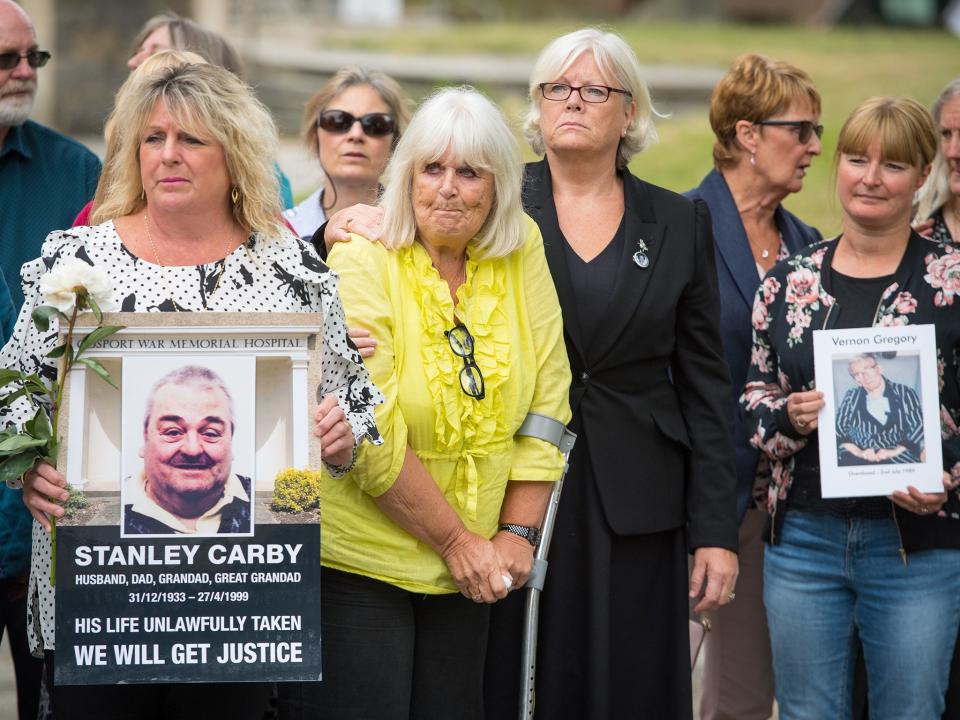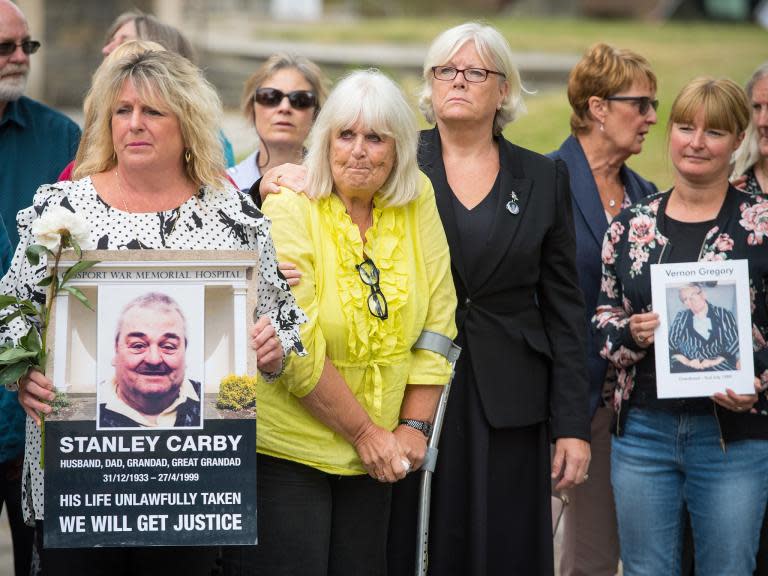I write this as an anonymous NHS consultant – I recognise the culture that led to Gosport
I write this as an anonymous NHS consultant, who wants to work in a more honest and open health service.
I want to work in an NHS where families can feel confident that their love ones are in “safe hands” and where compassion comes as standard.
An NHS in which poor care is shunned and speaking-up is the norm.
An NHS which actively learns from its failings and pro-actively involves patients and carers in ensuring future patients are protected from harm.
I want to work in an NHS where patient safety is ingrained within the culture of the organisation, where covers-ups (and therefore the necessity for whistle-blowing) have been confined to history.
However, today, as a healthcare professional I feel shamed by the Report of the Gosport Independent Panel into the care of patients at Gosport War Memorial Hospital.
What’s more, as a human, I feel sorrow and sympathy for those families who have had to battle with a corrupt governance system for almost two decades in order for the truth to be heard.
Over a 12 year period, there was a culture within Gosport War Memorial Hospital which seemingly normalised the use of strong opiates and sedative analgesia, which in turn prematurely caused death. There appears little doubt on the basis of the report’s findings that Dr Jane Barton was pivotal in this culture; but others at the hospital including doctors, nurses, pharmacists and managers (as well as regulatory bodies) enabled it to persist unchecked.
When asked why they didn’t speak up, a nursing staff member commented; “I cannot explain why I didn’t speak out against the regime”. That answer is indicative of an unhealthy organisational culture, where poor care is tolerated, allowed to fester and become normalised.
Sadly in 2018 a culture of deny and defend remains evident within the NHS and the words of The Right Reverend James Jones KBE will resonate with many families who have had more recent experience of the NHS complaints & incident review process;
“Some of the family members are the first to acknowledge that their quest for truth and accountability has had an adverse effect on their own lives. They know that the frustration and anger that they feel has sometimes consumed them…
“Over the many years during which the families have sought answers to their legitimate questions and concerns, they have been repeatedly frustrated by senior figures… The obfuscation by those in authority has often made the relatives of those who died angry and disillusioned…
“It is a lonely place, seeking answers to questions that others wish you were not asking… But it is impossible to move on if you feel that you have let down someone you love, and that you might have done more to protect them from the way they died.”
Over the 20 years since the events at Gosport, we have seen a large number of reports, guidelines and policies introduced to improve patient care and bring about a “cultural shift” within the NHS. Among the more notable are the Duty of Candour legislation and the Freedom to Speak-up Guardians. There has also been an array of oversight agencies in the healthcare sector, including the National Patient Safety Agency, NICE, CHI and the Care Quality Commission to name a few. However, from my own experience and from speaking with patients and carers, I am aware that seeking the “the truth” and “learning from harm” can remain a battle in too many areas of the NHS as an organisation.
In my opinion, you cannot centrally legislate for culture change; it must come from within the organisation and run through its fabric. Within the NHS there are inherent conflicts that continue to stifle the open culture that we seek. These include both psychological conflicts (fear of senior colleagues, interpersonal relationships) and organisational or corporate conflicts (fear of reputational damage for instance). Until we openly discuss and address these issues, we will never achieve the culture we desire.
The 2013 Berwick review into patient safety, titled “A promise to learn – a commitment to act”, recommended that “patients and their carers should be present, powerful and involved at all levels of healthcare organisations from wards to the boards of Trusts”. Sure enough, top down legislation and regulation has not worked, and I firmly believe that the cultural shift we desire, will only occur once patients and carers are given this strong voice within the governance structure of NHS, providing both insight and oversight and defining the culture of the organisation.
Jeremy Hunt is a passionate advocate for patient safety and I would invite him to respond to my twitter request to facilitate a patient carer “Schwartz round” and help promote an NHS in which openness, candour and the simple truth become the norm. Maybe then I too will be able to speak openly in my own name, without fear.
Dr Murphy is an NHS consultant who tweets @DrMurphy11

 Yahoo News
Yahoo News 

